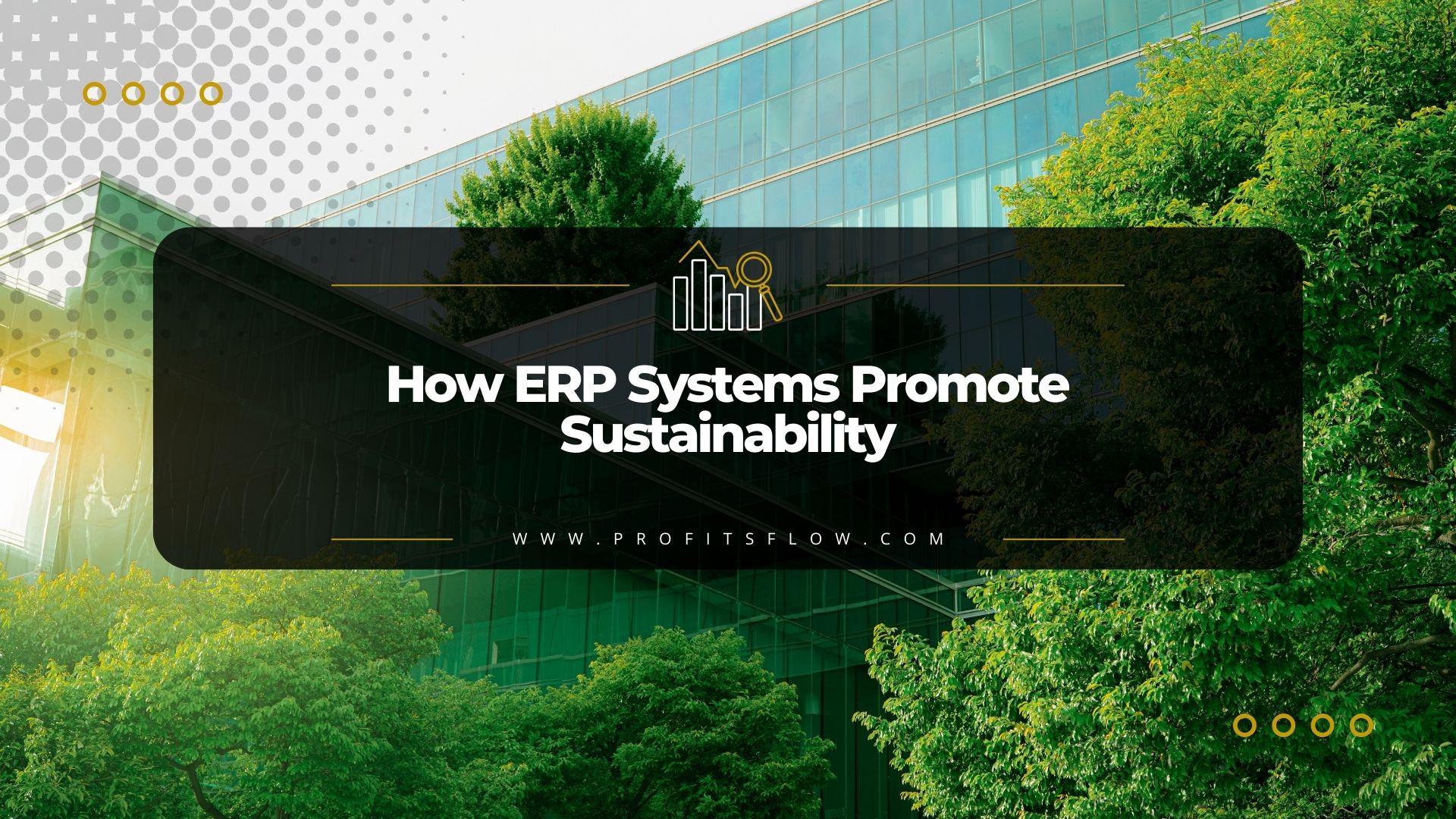Sustainability has become a critical factor in modern business strategy. Consumers, governments, and investors are increasingly prioritising environmentally responsible practices. Implementing an ERP (Enterprise Resource Planning) system can be a game-changer for companies striving to enhance their sustainability efforts. By integrating various business processes and providing real-time data, ERP systems help organisations optimise resource use, reduce waste, and achieve greater efficiency.
Firstly, what is an ERP system? These are comprehensive software solutions that integrate and manage core business processes. They include modules for finance stock control, supply chain management, manufacturing, and more. By centralising data and processes, ERP solutions provide a unified platform that enhances decision-making and operational efficiency.
One of the key strengths of ERP systems is their ability to integrate various business processes into a single cohesive system, allowing for better coordination and information flow across departments.
Sustainability and Its Importance
Environmental Impact: Reducing the environmental footprint of business operations is not only crucial for protecting the planet but also for ensuring long-term business viability.
Business Benefits: Embracing sustainability can improve brand reputation, reduce costs, and ensure compliance with regulations. Companies that prioritise sustainability can attract environmentally conscious consumers and investors.
Global Trends: There is a global push towards sustainability, driven by both regulatory requirements and changing consumer preferences. Businesses are increasingly expected to adopt sustainable practices and demonstrate their commitment to environmental responsibility.
How ERP Systems Promote Sustainability
Inventory Control: ERP systems help manage inventory levels, reducing waste and overproduction. By maintaining optimal inventory, companies can minimise the environmental impact associated with excess stock.
Resource Planning: Better resource allocation through ERP systems ensures materials are used efficiently, reducing unnecessary use and maximising productivity. This contributes to both cost savings and environmental sustainability.
Energy Usage: ERP systems can track and optimise energy consumption in production and operations. By analysing energy usage data, companies can identify inefficiencies and implement strategies to reduce energy use, lowering both operating costs and environmental impact.
Waste Reduction: Monitoring systems within ERP can identify waste in manufacturing processes, allowing businesses to implement measures to reduce and recycle waste more effectively. This not only conserves resources but also reduces disposal costs.
Supplier Management: ERP systems ensure suppliers meet sustainability criteria by providing tools to assess and manage supplier performance. This helps companies build a more sustainable supply chain.
Logistics Optimisation: Optimising transportation and logistics with an ERP solution can significantly reduce carbon emissions and fuel consumption. Efficient routing and load planning minimise the environmental impact of logistics operations.
Regulatory Compliance: ERP systems help companies comply with environmental regulations by automating the tracking and reporting of regulatory requirements. This ensures companies stay compliant and avoid fines.
Sustainability Reporting: ERP systems facilitate transparent and accurate sustainability reporting, making it easier for companies to communicate their environmental performance to stakeholders. This enhances credibility and accountability.
Challenges and Considerations
Implementation Challenges: Implementing an ERP system can be challenging, particularly in terms of cost and complexity. It requires careful planning, stakeholder involvement, and a clear understanding of the company’s sustainability goals. We here at Profitsflow have plenty of experience in this field as we have implemented our own ERP solution EFACS E/8 since 2009.
Best Practices: Successful ERP implementation focused on sustainability involves setting clear objectives, choosing an ERP system with robust sustainability features, and continuously monitoring and adjusting processes to meet sustainability targets.
ERP systems offer a powerful tool for companies aiming to enhance their sustainability. By improving resource management, energy monitoring, supply chain optimisation, and compliance reporting, by choosing the correct ERP system you can help your business reduce their environmental impact while achieving operational efficiencies.
We here at Profitsflow are the providers of the fully comprehensive ERP solution EFACS E/8. If you and your team need any assistance when it comes to choosing a solution you can feel free to contact us here and we would be happy to help.
